Federal Funding Opportunities
This program provides support to develop coastal and ocean acidification education tools and programs aimed at increasing diversity, equity, inclusion, and accessibility in ocean literacy, stewardship, and workforce development, particularly in non-coastal, inland and underserved communities. Priority goals include engaging diverse audiences in ocean acidification education and outreach, matching ocean acidification communication needs with existing research, education and outreach activities, while developing innovative approaches for community involvement.
The Upward Bound (UB) Program supports projects designed to provide high school students from low-income families and families in which neither parent holds a bachelor’s degree with the skills and motivation necessary to complete a program of secondary education and enter into and succeed in a program of postsecondary education. The goal of Upward Bound is to increase the rate at which participants complete secondary education and enroll in and graduate from institutions of postsecondary education. Upward Bound projects provide academic instruction in mathematics, laboratory sciences, composition, literature, and foreign languages. As well as tutoring, counseling, mentoring, cultural enrichment, work-study programs, education or counseling services designed to improve the financial and economic literacy of students; and programs and activities that are specially designed for students who are limited English proficient, students from groups that are traditionally underrepresented in postsecondary education, students with disabilities, students who are homeless children and youths, students who are in foster care or are aging out of foster care system or other disconnected students.
This program provides grants to establish, strengthen, and operate language and area or international studies centers that will be national resources for teaching any modern foreign language. Grants support instruction in fields needed to provide full understanding of areas, regions or countries; research and training in international studies; work in the language aspects of professional and other fields of study; and instruction and research on issues in world affairs.
The Foreign Language and Area Studies (FLAS) Program provides academic year and summer fellowships to institutions of higher education to assist meritorious undergraduate and graduate students receiving modern foreign language training in combination with area studies, international studies, or the international aspects of professional studies. FLAS fellowships may also assist graduate students engaged in predissertation-level study, preparation for dissertation research, dissertation research abroad, or dissertation writing.
This program focuses resources on education problems or issues that are a high priority for the nation and that create both a structure and process for researchers who are working on these issues to share ideas, build new knowledge, and strengthen their research and dissemination capacity. Networks advance the field’s understanding of a problem or issue beyond what an individual research project or team can do on its own and assist policymakers and practitioners in using this information to strengthen education policies and programs and improve learners’ education outcomes. For 2022, proposals are sought for the Leveraging Evidence to Accelerate Recovery Nationwide Network which will focus on adapting and preparing to scale existing, evidence-based products that have the potential to accelerate students’ learning relative to pre-pandemic rates of growth for the many learners enrolled in kindergarten through grade 12, postsecondary education, or adult education programs whose learning was affected by the COVID-19 pandemic. Applications that address learning acceleration and recovery for students from underrepresented groups that were disproportionately affected by COVID-19 are of particular interest.
The Improving Pandemic Recovery grant program will support research to counteract instructional and learning loss encountered by many learners during the COVID-19 pandemic; identify, explore, and evaluate state and local programs and policies designed to accelerate learning and recovery of those learners; and provide evidence to state and local agencies to improve learner engagement, reengagement and achievement through recovery activities. This program seeks to establish two research networks, with one examining recovery activities in prekindergarten through grade 12 and the other examining recovery activities in community colleges.
The Seeding Critical Advances for Leading Energy technologies with Untapped Potential (SCALEUP) funding opportunity supports innovative energy research and development (R&D) that complements Advanced Research Projects Agency Energy’s (ARPA-E) primary R&D focus on early-stage transformational energy technologies that still require proof-of-concept. SCALEUP builds upon ARPA-E-funded technologies by scaling the most promising funded technologies in their development pathways to ensure the U.S. does not lose the lead in the development, scaling, and manufacturing of technologies necessary to compete in the rapidly evolving global energy markets.
This funding opportunity solicits applications in the following research areas:
- Microbial biosystems design: Interdisciplinary, fundamental systems biology research to advance the development of new genome-wide design and engineering technologies, innovative modeling, and high-throughput testing approaches for a broad range of prokaryotic and eukaryotic microbes relevant to the production of biofuels and bioproducts from biomass, from synthetic polymers, or as a byproduct of photosynthesis.
- Plant biosystems design: Integrative, basic research in plant systems biology, genome scale modeling, design, and engineering to advance towards the development of enhanced bioenergy crops, capable of producing biofuels, bioproducts, biomaterials and/or their precursors while growing in marginal environments.
Applications must include strategies to address biocontainment, minimizing risks of potential release of engineered organisms into the environment or other unintended outcomes.
The Energy Frontier Research Center program brings together diverse world-class multi-disciplinary teams of scientists to perform energy relevant, basic research with a scope and complexity beyond what is possible in single investigator or small-group awards. These multi-investigator, multi-disciplinary centers accelerate transformative scientific advances for the most challenging topics in materials sciences, chemical sciences, geosciences, and biosciences research that will enable future clean energy technologies and advanced manufacturing.
The Centers for Disease Control and Prevention is soliciting investigator-initiated research that will support the identification and rigorous evaluation of effective strategies that link people in recovery for illicit substance use disorders to at least one evidence-based recovery support service available within their community, and, if needed, re-link people to such services following resumption of illicit substance use. Research is needed to evaluate strategies that are tailored to the individual to increase recovery capital and maintain recovery, or initiate return to care, among people with illicit substance use disorders through linkage to programs and services that help support recovery over time (i.e., recovery support services). Recovery support services can improve the quality of personal relationships among patients with illicit substance use disorders, increase the number of low-risk people in their social networks, and provide access to tangible resources such as training and employment opportunities to support and sustain their long-term recovery. Linkage to recovery ecosystems to meet individual needs may include connecting people to multiple recovery support services that work together, potentially multiple times, and rigorous evaluation can help to identify replicable strategies to accomplish such linkages. The focus of this funding opportunity is on understanding the effectiveness of strategies to link people who are in recovery, or re-link people following resumption of illicit substance use, to recovery support services across the social ecology that are available in their community to comprise a recovery ecosystem tailored to the needs of the individual.
The purpose of this funding opportunity is to develop new, exploratory methods, approaches, and/or tools to apply to existing data streams (e.g., electronic health records, syndromic surveillance, claims data, registry data, pharmacy dispensing, and mortality records) that could provide novel insights into the dynamics of opioid and prescription drugs misuse, addiction, recovery, relapse, and recovery to facilitate rapid understanding of the opioid epidemic for prevention and treatment or to develop methods for small area estimation that inform decisions of local (e.g., substate) jurisdictions. It emphasizes approaches that shorten the lags between data capture and data availability so the data is available real-time or near real-time to provide actionable insights, and methods and tools that improve efficiency and practical use of surveillance, clinical or other relevant data that may allow for faster or better localized responses or better allocation of resources to address the opioid epidemic.
This Notice of Special Interest highlights the need for research on strategies, and interventions to address vaccine hesitancy, uptake, and implementation among populations who experience health disparities. Research is needed to understand and address misinformation, distrust, and hesitancy regarding uptake of vaccines (e.g., SARS-CoV-2, pneumococcal, influenza, hepatitis B, human papilloma virus (HPV)) among adults in the U.S., especially in populations at increased risk for morbidity and mortality due to long-standing systemic health and social inequities and chronic medical conditions. This notice is focused on adults 18 years and older except for SARS-CoV-2 and HPV-related vaccine topics, which may include eligible children and adolescents. The purpose of this notice is to solicit research to: evaluate community-engaged interventions (e.g., expand reach, increase access, address psychosocial barriers) to facilitate vaccination uptake in clinical and community contexts; evaluate organizational, local, state, and federal policies and initiatives that mitigate or exacerbate disparities in vaccine access, uptake, and series completion, and understand and address barriers to increasing reach, access, and uptake of vaccinations among populations who experience health disparities.
The purpose of this funding opportunity is to reduce health disparities through the development and translation of appropriate medical technologies. This announcement encourages applications to develop medical devices, imaging systems, robotic systems, biomaterial interfaces, synthetic biological systems, mathematical and modeling solutions, and other technologies to address the healthcare needs of populations that experience health disparities. Proposed medical technologies must have the following basic characteristics: effective, affordable, culturally acceptable, and easily accessible to those who need them. Responsive grant applications will involve a formal collaboration with a healthcare organization or public health agency serving one or more populations that experience health disparities.
The overarching goal of this Brain Research through Advancing Innovative Neurotechnologies (BRAIN) Initiative program is to support educational activities that complement and/or enhance the training of a workforce to meet the nations biomedical, behavioral and clinical research needs in research areas relevant to the BRAIN Initiative. To accomplish this over-arching goal, this funding opportunity will support creative educational activities with a primary focus on Courses for Skills Development and Research Experiences. The purpose of this funding opportunity announcement is to encourage applications for the continuation and/or expansion of ongoing and new research education programs that will significantly advance the educational goals of the BRAIN Initiative.
Using a convergence research approach and innovation processes like human-centered design, user discovery, and team science and integration of multidisciplinary research, the Convergence Accelerator program seeks to transition basic research and discovery into practice to solve high-impact societal challenges. Specifically, this solicitation invites proposals for the Securely Operating Through 5G Infrastructure Track Topic (Track G). The overall objective of Track G is to provide military, government, and critical infrastructure operators with the ability to securely operate through 5G wireless communications infrastructures.






